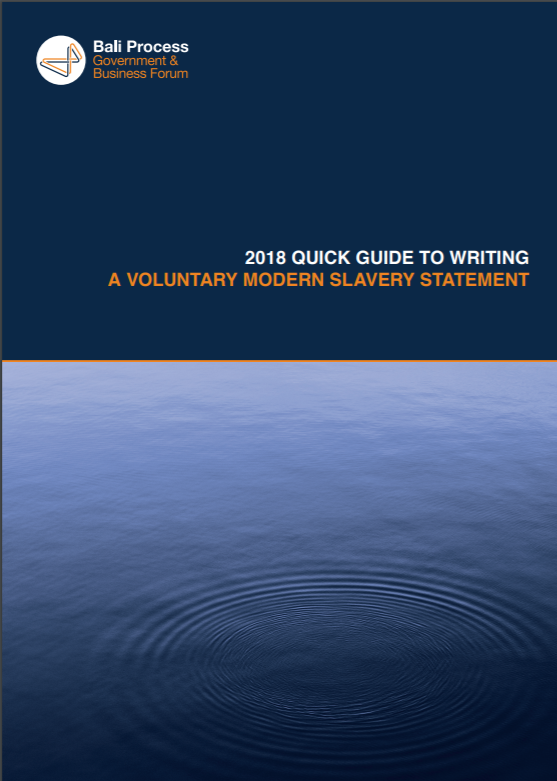The modern slavery statement is a public commitment and statement with three main goals:
- it acknowledges that forced labour, human trafficking, child labour and modern slavery affects every business, sector and country – starting with their own company. THe visibility of the slavery statement being published on homepages of these organisations and promoted via their social media platforms and networks raises awareness in the business communities in this region.
- it acts upon the resources within the company’s power and influence by committing to respect, protect and champion the human rights of all who come into contact with the company’s operations, supply chains.
- it advances leadership in the country to pave the framework for a new way of sustainably doing business in the region.
Currently modern slavery statements are compulsory reports required from large companies doing business in California and the United Kingdom, with similar laws before the Australian Parliament (likely to be introduced before the end of the year). A Modern Slavery Bill has been submitted to review by the Hong Kong Government. Consultation for similar laws are at early stages in both Canada and New Zealand. Business should carefully review these existing and developing laws.
This Guide is designed for businesses who are not currently required to report under under compulsory reporting laws but rather for those “early adopters” looking to be ahead of the laws and voluntarily report in emerging markets. This Guide is not comprehensive nor prescriptive, nor legal advice. Businesses should strive to continually improve modern slavery reporting year or year”

